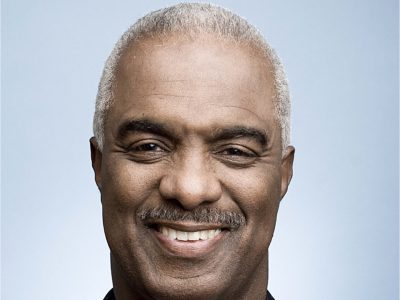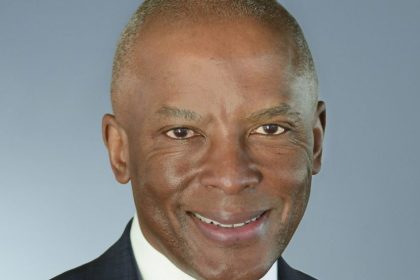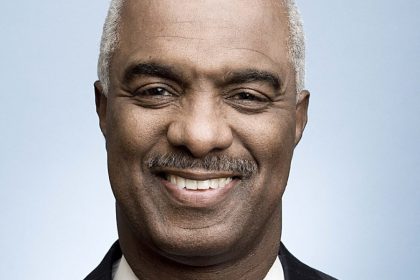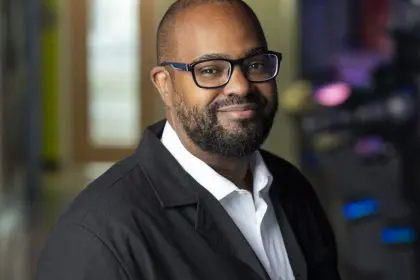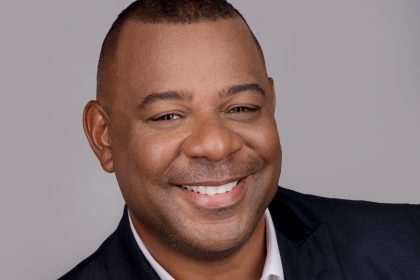Dr. Harry L. Williams, who transformed the Thurgood Marshall College Fund into a powerhouse of Black higher education, has emerged as one of the most influential voices in advancing historically Black colleges and universities.
As President and CEO of TMCF, Williams oversees 53 public HBCUs and Predominantly Black Institutions that educate 80 percent of HBCU students nationwide. Under his leadership, the organization has seen revenue growth exceeding 250 percent while forging partnerships with Fortune 500 companies like Boeing, Medtronic, and Visa.
A former president of Delaware State University, Williams has worked across party lines to advance HBCU sustainability, expanding TMCF’s reach to include Historically Black Community Colleges in 2022. His strategic vision has positioned the organization as the premier source for companies seeking diverse talent.
Williams, who holds degrees from Appalachian State and East Tennessee State Universities, lives with his wife Dr. Robin S. Williams. Their sons, Austin and Gavin, are Howard University graduates, with Gavin now pursuing law at Southern University. His book is set for spring 2026.
How have you pivoted the organization and your leadership at the Thurgood Marshall College Fund?
It’s been seven years, and it’s been a great seven years here at Thurgood Marshall College Fund, and we’ve adjusted to the times, and the bottom line is, we did an internal look at what we do best, and I said, we’re going to lean into that, and what we do better than anyone, we prepare students for amazing careers with top fortune 5 companies.
What we do better, meaning, when we support our campuses. And what we do really, really, really well is provide scholarships, and I said, those three things will be the focus of TMCF. And we will double down. On that, and we will find partners that will lean in with us with those major three initiatives and just putting that out there and being very clear.
This organization was founded almost 40 years ago, and I found, or had those pillars in place. So there’s nothing new that we’re doing other than we’re leaning in and scaling it to a level that I think, the sky, is the limit in terms of the impact of what we can do, in terms of helping all HBCUs.
How do you shape these students to prepare them for corporate opportunities?
I appreciate that we spend a lot of time with our students getting them ready for interviews when they come and meet with Fortune 500 companies. It’s a year long process. To be honest with you, we identify these students. We take them through a very rigorous process of interviewing, doing interviews like you and I are doing right now.
We do a lot of video interviews, getting to know the students, and we don’t want them to walk in and be surprised of anything. So we get them ready. We do a lot of coaching. We do a lot of role playing like when you’re interviewing. How do you conduct yourself when you’re standing up? I mean, we just finished last week in Birmingham, Alabama.
We had a workforce development Summit. We brought in 200 students from historically black community colleges, and we did a session on etiquette.
How do you eat when you walk in the positions of the fork and a knife, and when you use it, and how you use it, those are things are important to have that in your tool belt when you’re sitting down with a CEO, or sitting down with the head of an HR Division, because you’re prepared and you’re ready.
So the things that we do at the Thurgood Marshall College Fund is getting students ready for those opportunities, because in corporate America there’s a lot of rules, but there are also a lot of unwritten rules, and we want to make sure our students understand those unwritten rules. And that’s important for them to navigate the corporate landscape.
So that’s what we do. And we spend a lot of time doing that. And it has been very beneficial to our students and also to our partners.
What advice do you have for parents preparing their students for these opportunities?
Matter of fact, we just had an incredible weekend in Los Angeles, where we had the battle of the bands in SoFi Stadium, which is a really nice football arena. We had over 50,000 African American students and parents had 32,000 high school students there from the LA Area, and it was a beautiful scene, and a lot of those students will be the first in their families to go to college.
And so what we want parents to know that at HBCUs, when you’re going there, you’re going to get a strong education, but you’re also going to get a good educational life. What to look out for in life along this journey. Yes, you’re going to get the book knowledge, which is important, but also navigating the system.
So I want parents to know that at the Thurgood Marshall College Fund we are the trusted partner and guiding our students through this process, and we want them to understand the importance of them being able to identify when they walk in a room. We want you to be your authentic self. No question about it. We don’t want you to feel like you gotta be someone else.
But we want you to be your authentic self with all the tools. Knowing who you are engaging with, and when you need to switch, almost like until you shift. And you’re shifting not be yourself, but also understand the corporate landscape and how to navigate that process. And that’s what we do.
We want to make sure that our students are getting great jobs. And when you get those great jobs, those great jobs are going to turn into great careers. And it’s going to not only change the student life, but it would change the trajectory of his whole entire family.
In terms of just breaking down barriers that may have been blockers for us getting in, and we want to steamroll through those barriers. And I want parents to know that this is a great opportunity for their son and daughter if they decide to come to an HBCU, because they’re going to gain that insight that you wouldn’t necessarily get if you went to some other institution, I can guarantee you that.
Can you share some recent wins as CEO?
Well, I tell you we just made a major major announcement last Friday on the campus of Lincoln University, which is our oldest four-year historically Black College, founded in 1854, we went into the library where our namesake, Justice Marshall, used to debate and made this announcement. So it was kind of historic to be there, because Justice Marshall graduated from Lincoln University.
He was the president of the debate team there at Lincoln University, and we made this announcement, where we are partnering with a major endowment called the Lilly Endowment, and we announced on Friday that they have given us $25 million to support our member institutions. We’re going to support eight institutions.
We have 32 that will be able to compete for these grants, and they’ll get grants up to close to 3 million dollars to help with sustainability of these institutions. So that’s a major signal to the HBCU world as it relates to.
Yes, as it relates to the support that we have out there, and the support of making sure that these universities will be here another 200 years or so, and so one of the things that the Lilly Endowment and they were there when we made this announcement.
They wanted the world to know that we support HBCUs, and we’re supporting not only with our words, but we’re supporting with our resources. And this is just a start of that process. So that was a major win for the Thurgood Marshall College Fund. But it was a major, even bigger win for HBCUs.
How important is corporate experience for aspiring CEOs?
Absolutely 100 percent, full stop, and a lot of our students will break through and they will become entrepreneurs. But it’s good to know the landscape, and by getting some inside opportunities to see how this, how it works, and then you can build from there. So it’s only going to support you during that journey, and we want you to do that.
But we also want you to those who are out there, and you have aspirations to be bold and to be audacious when it comes to pushing forward to achieve some of these goals and also be patient. It’s not all going to come at you at one time, but you got to take it one step at a time, but you get up every day. Just get up, get up every day working towards this goal, and I guarantee you’ll see some positive fruits out there.
How can students build wealth while working at major corporations?
Absolutely important. When you start a company, most companies will have a 401k, which is a retirement plan for their employees, and that’s important. And they also have a match, and some companies might allow you to increase that match. Pre-tax. And sometimes we don’t think about that.
We don’t think about. We want that cash right now, but allowing you to save a little bit more that will build, and the way money works in this country.
The more you have it, the more you have, the more it will grow. And we have to be patient. I think sometimes that’s difficult for young people, especially when you just start. And now you might have a job making a hundred thousand dollars. And you’re thinking that you’re really making $100,000, but if you look at it and you pull it back, they’re taking out retirement. They’re taking out health care.
They’re taking out a lot of things, and you actually probably take home when it’s when Uncle Sam, Uncle Sam’s going to get his piece of it. And you’re 100 in terms of cash coming in might be 70,000.
But you may be thinking you’re spending at a hundred thousand rate, and sometimes we get in trouble that way, we get in trouble because we get credit cards, and when we get credit cards we charge it. And we think we can.
We can pay. Next thing, you know, you got a credit card with a lot of interest rate on it from that perspective. So the first thing I would encourage young people is to invest in a home. Because that home will allow for you, not only with your job, but you’ll be able to have what they call an asset, something that you own, and that will grow too. And then when that grows, that’ll give you some.
That’s how you’re increasing your net worth. And so we want students to kind of understand the basic steps in that. And sometimes it can be difficult, especially if you come from an environment where you might not live in a home that your parents own, and that’s okay. But you have an opportunity to own your own home, and that will allow you. And that’s what we’re doing at Thurgood Marshall.
We’re encouraging young people when they and we take them through classes. There are classes that’s available. We have training that we do. We work with community service organizations that help with financial management and wealth building. So we do all those activities because we want our students to be successful.
We want them to come, not only move to the middle class, we want them to move up to the upper middle class, and when you do that, it’s by building that net worth and increasing that on a daily basis.
Why is curiosity important for leadership?
Curiosity is the game because when you’re curious, you’re always thinking you’re always thinking about something and what we do here we are always looking to. How do we continue to improve? It’s called continuous improvement. If you look at, I use Apple for example, Apple came out with the iPhone how many versions of the iPhone they have now.
I think they got like 16, but it’s still the iPhone. But every year they come out with a better product, something that they add on to it. And that’s what we do here. We’re always looking at, how do we? How do we do it better in terms of helping students get ready for corporate America? How do we improve on what we’re already doing to make it even better?
And I think that’s the part of life that’s important for all of us to know is that every single day you got to look at how you’re going to get better the next day.
So you continue to improve, and that’s going to help you. And that’s going to make this. When you’re curious. You’re looking at your thinking, and you’re forcing yourself to think about different ways of how you do your current role. I think that’s going to transfer into improvement, and it’s going to make everybody else around you improve, too.
So you just, you never relax, and you never take it easy. You never! I’m telling you. You have a day off here and there, but you but you got to get up every day ready to go.


